centralasiaprogram.org
image from
The George Washington University – Elliott School of International Affairs’ Central Asia Program (CAP) welcomes applications for its Central Asia-Azerbaijan Fellowship Program.
The Central Asia-Azerbaijan Fellowship Program (CAAFP) is intended for young professionals – scholars, government officials, policy experts, human rights and activists – who want to enhance their research and analytical skills and seek to become public policy leaders in their respective countries. More generally, the fellowship program seeks to provide a platform for the exchange of ideas and to build lasting intellectual networks among the Central Asian, Azerbaijani, and U.S. scholarly and policy communities.
CAAFP fellows will spend five months in residence at GW, where they will participate in tailor-made programs and be introduced to U.S. policy and expert communities in both Washington, DC and New York. Fellows are required to attend seminars, workshops and training sessions, to write one policy brief on a predetermined theme, and to present their research at two public seminars. Throughout their fellowship, fellows will be mentored by program faculty affiliates.
Three fellows will be selected for Spring 2018. Fellows will be awarded a monthly stipend of $3,000 (subject to taxes). Travel to and from Central Asia to Washington, DC will also be covered.
The theme for the Spring 2018 session is:
New Urban Phenomena in Central Asia: City Migration, Landscapes, Socioeconomic Niches, and Cultures
With urbanization rates in Central Asia steadily rising, cities occupy a central importance in the functioning of the Central Asian countries and their citizens’ daily lives. However, specific roles that each city plays, as well as political, economic, social, and cultural phenomena that cities produce or become hosts to, are diverse and constantly evolving. In this context, which processes taking place in the region’s urban centers can be identified as new urban phenomena and why? What processes, junctures, continuities and discontinuities characterize such urban phenomena as city migration, city landscapes, old and new socioeconomic niches and cultural transformations, among others? What significance do they hold for a particular city and the region as a whole?
Applicants may focus on one country or consider several countries in the region.
In their proposal for the policy paper, applicants need to:
1.Explain the relevance of the proposed research project to the call theme
2.Analyze the significance and implications of your research project for the region
3. Provide feasible and specific policy recommendations
2.Analyze the significance and implications of your research project for the region
3. Provide feasible and specific policy recommendations
Eligibility
- Applicants must be between 25 and 40 years of age.
- Applicants must be a citizen of any of the following six countries: Azerbaijan, Kazakhstan, Kyrgyzstan, Uzbekistan, Tajikistan, or Turkmenistan AND currently reside in one of the six countries.
- Applicants must have a background in government, policy, academia, human rights, or democracy.
- Academic candidates must possess a Master’s degree and have experience in policy-oriented activities. For non-academics an equivalent degree of professional achievement is expected.
- Applicants must be fluent in both written and spoken English
Selection
Fellows will be selected by the Central Asia Fellowship Advisory Board. The decision of the jury is final and no appeal is possible. All candidates are informed of the outcome of their applications by e-mail.
How to apply
Apply online now
Applications for the Spring Session (January 15 – June 15, 2018) should be received no later than Sunday, October 15, 2017.
Incomplete or late applications will not be considered.
Applicants will be notified by email by mid-November 2017.
Applicants will be notified by email by mid-November 2017.
Funders
The Fellowship is funded by the Open Society Foundations – NY
Fall 2017 CAAFP Fellows
 Anna Gussarova, director and co-founder of the Central Asia Institute for Strategic Studies (www.caiss.expert). Previously, she has served as a senior research fellow at the Kazakhstan Institute for Strategic Studies under the President of the Republic of Kazakhstan, covering transnational and cyber security, violent extremism and deradicalization issues. She graduated with a major in American Studies and holds a Master’s degree in Central Asia Security Studies. She is an alumna of the European George C. Marshall Center for Security Studies (Garmisch-Partenkirchen, Germany), Asia Pacific Center for Security Studies (Honolulu, USA), Collective Security Treaty Organization (CSTO) Institute (Moscow, Russia). Among other things, she has been teaching ‘Multilateral Diplomacy’, ‘International Terrorism’ and ‘Cyber Technologies and Cyber Security’ courses at the German-Kazakh University in Almaty since 2012. During her fellowship, she will study soft and ‘smart’ approaches to CVE (counter-violent extremism). The research will focus on core indicators such as communication channels and prevention tools, as well as on the inclusion of the media and civil society institutions in countering violent extremism in Kazakhstan.
Anna Gussarova, director and co-founder of the Central Asia Institute for Strategic Studies (www.caiss.expert). Previously, she has served as a senior research fellow at the Kazakhstan Institute for Strategic Studies under the President of the Republic of Kazakhstan, covering transnational and cyber security, violent extremism and deradicalization issues. She graduated with a major in American Studies and holds a Master’s degree in Central Asia Security Studies. She is an alumna of the European George C. Marshall Center for Security Studies (Garmisch-Partenkirchen, Germany), Asia Pacific Center for Security Studies (Honolulu, USA), Collective Security Treaty Organization (CSTO) Institute (Moscow, Russia). Among other things, she has been teaching ‘Multilateral Diplomacy’, ‘International Terrorism’ and ‘Cyber Technologies and Cyber Security’ courses at the German-Kazakh University in Almaty since 2012. During her fellowship, she will study soft and ‘smart’ approaches to CVE (counter-violent extremism). The research will focus on core indicators such as communication channels and prevention tools, as well as on the inclusion of the media and civil society institutions in countering violent extremism in Kazakhstan. Karlygash Kabatova is a researcher currently studying how society development and sexuality education interrelate. Together with a colleague, she is completing a study on the emergence of sexuality education in Kazakhstan’s school system. Karlygash is a member of an Astana-based PaperLab Research Group. Her recent work experience includes organizing open expert discussions at PaperLab, student recruitment for the University of Central Asia, data analysis for the Norwegian Helsinki Committee’s human rights project. Karlygash holds a Master’s of Arts degree in Politics and Security (Central Asia) from the OSCE Academy in Bishkek. She is a graduate of the Soros Foundation-Kazakhstan’s Public Policy Initiative Fellowship Program for young researchers and the Bolashak Scholarship Program. During her fellowship, Karlygash will study the influence of social media on advancement of sexual and reproductive literacy among young women of Central Asia, and implications of this phenomenon for formal educational systems of the region.
Karlygash Kabatova is a researcher currently studying how society development and sexuality education interrelate. Together with a colleague, she is completing a study on the emergence of sexuality education in Kazakhstan’s school system. Karlygash is a member of an Astana-based PaperLab Research Group. Her recent work experience includes organizing open expert discussions at PaperLab, student recruitment for the University of Central Asia, data analysis for the Norwegian Helsinki Committee’s human rights project. Karlygash holds a Master’s of Arts degree in Politics and Security (Central Asia) from the OSCE Academy in Bishkek. She is a graduate of the Soros Foundation-Kazakhstan’s Public Policy Initiative Fellowship Program for young researchers and the Bolashak Scholarship Program. During her fellowship, Karlygash will study the influence of social media on advancement of sexual and reproductive literacy among young women of Central Asia, and implications of this phenomenon for formal educational systems of the region. Diana Mamatova is a young professional in the area of peacebuilding, development and programme management, and policy research. She holds a Master’s of Arts Degree in Political Science with the focus on Central Asian politics from the OSCE Academy in Bishkek (Kyrgyz Republic) and a Master’s of Letters in Peace and Conflict from University of St. Andrews (United Kingdom). She worked with the international NGO ACTED during the post-humanitarian and development phases following June 2010 inter-ethnic violence in southern Kyrgyzstan. She recently worked with the United Nations in Kyrgyzstan, where she managed nation-wide research project on gender issues and peacebuilding for evidence-based policy-making. During her fellowship, Diana will research and provide policy recommendations on borderland grassroots interactions in the Fergana Valley for sustainable peacebuilding outcomes.
Diana Mamatova is a young professional in the area of peacebuilding, development and programme management, and policy research. She holds a Master’s of Arts Degree in Political Science with the focus on Central Asian politics from the OSCE Academy in Bishkek (Kyrgyz Republic) and a Master’s of Letters in Peace and Conflict from University of St. Andrews (United Kingdom). She worked with the international NGO ACTED during the post-humanitarian and development phases following June 2010 inter-ethnic violence in southern Kyrgyzstan. She recently worked with the United Nations in Kyrgyzstan, where she managed nation-wide research project on gender issues and peacebuilding for evidence-based policy-making. During her fellowship, Diana will research and provide policy recommendations on borderland grassroots interactions in the Fergana Valley for sustainable peacebuilding outcomes.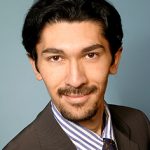 Jafar Usmanov is a researcher specializing in youth development issues in Tajikistan. He studied global governance and international relations in Germany, Kyrgyzstan and Tajikistan. He holds a Master’s degree (2008) from Jacobs University, a Master’s degree (2005) from the OSCE Academy in Bishkek, and a Bachelor’s degree (2003) from the Russian-Tajik Slavonic University. In the past, Jafar co-taught Introduction to conflict studies at the Tajik National University and held fellowships with Jacobs University and University of Hamburg in Germany. He also advised local development partners in Tajikistan on children and youth development issues in the country. Most recently, Jafar was part of a research team on everyday practices of various groups in Kyrgyzstan and Tajikistan. During the fellowship term, Jafar will explore youth-to-youth connections among young people living in selected border communities along the Kyrgyz-Tajik border.
Jafar Usmanov is a researcher specializing in youth development issues in Tajikistan. He studied global governance and international relations in Germany, Kyrgyzstan and Tajikistan. He holds a Master’s degree (2008) from Jacobs University, a Master’s degree (2005) from the OSCE Academy in Bishkek, and a Bachelor’s degree (2003) from the Russian-Tajik Slavonic University. In the past, Jafar co-taught Introduction to conflict studies at the Tajik National University and held fellowships with Jacobs University and University of Hamburg in Germany. He also advised local development partners in Tajikistan on children and youth development issues in the country. Most recently, Jafar was part of a research team on everyday practices of various groups in Kyrgyzstan and Tajikistan. During the fellowship term, Jafar will explore youth-to-youth connections among young people living in selected border communities along the Kyrgyz-Tajik border. Jeyhun Valiyev is a junior researcher with an academic interest in political economy, energy security, conflicts, human rights and democracy building in post-Soviet countries. He is currently engaged in a multi-media project on Desovietization in the Caucasus, along with experts from Armenia and Georgia. Jeyhun holds a BA Degree in International affairs from Qafqaz University in Baku with a year exchange program experience at James Madison University in Virginia, and a Master’s Degree in Global Political Economy from University of Kassel in Germany. His thesis analyzes the Russian-U.S. competition in Central Asia and the Caucasus by elaborating on the relevance of the Heartland theory and Neo-Eurasianist geopolitical thinking. During his fellowship, Jeyhun will study the societal interactions between Armenia and Azerbaijan, and focus on the impact of public diplomacy and grassroots relations.
Jeyhun Valiyev is a junior researcher with an academic interest in political economy, energy security, conflicts, human rights and democracy building in post-Soviet countries. He is currently engaged in a multi-media project on Desovietization in the Caucasus, along with experts from Armenia and Georgia. Jeyhun holds a BA Degree in International affairs from Qafqaz University in Baku with a year exchange program experience at James Madison University in Virginia, and a Master’s Degree in Global Political Economy from University of Kassel in Germany. His thesis analyzes the Russian-U.S. competition in Central Asia and the Caucasus by elaborating on the relevance of the Heartland theory and Neo-Eurasianist geopolitical thinking. During his fellowship, Jeyhun will study the societal interactions between Armenia and Azerbaijan, and focus on the impact of public diplomacy and grassroots relations.
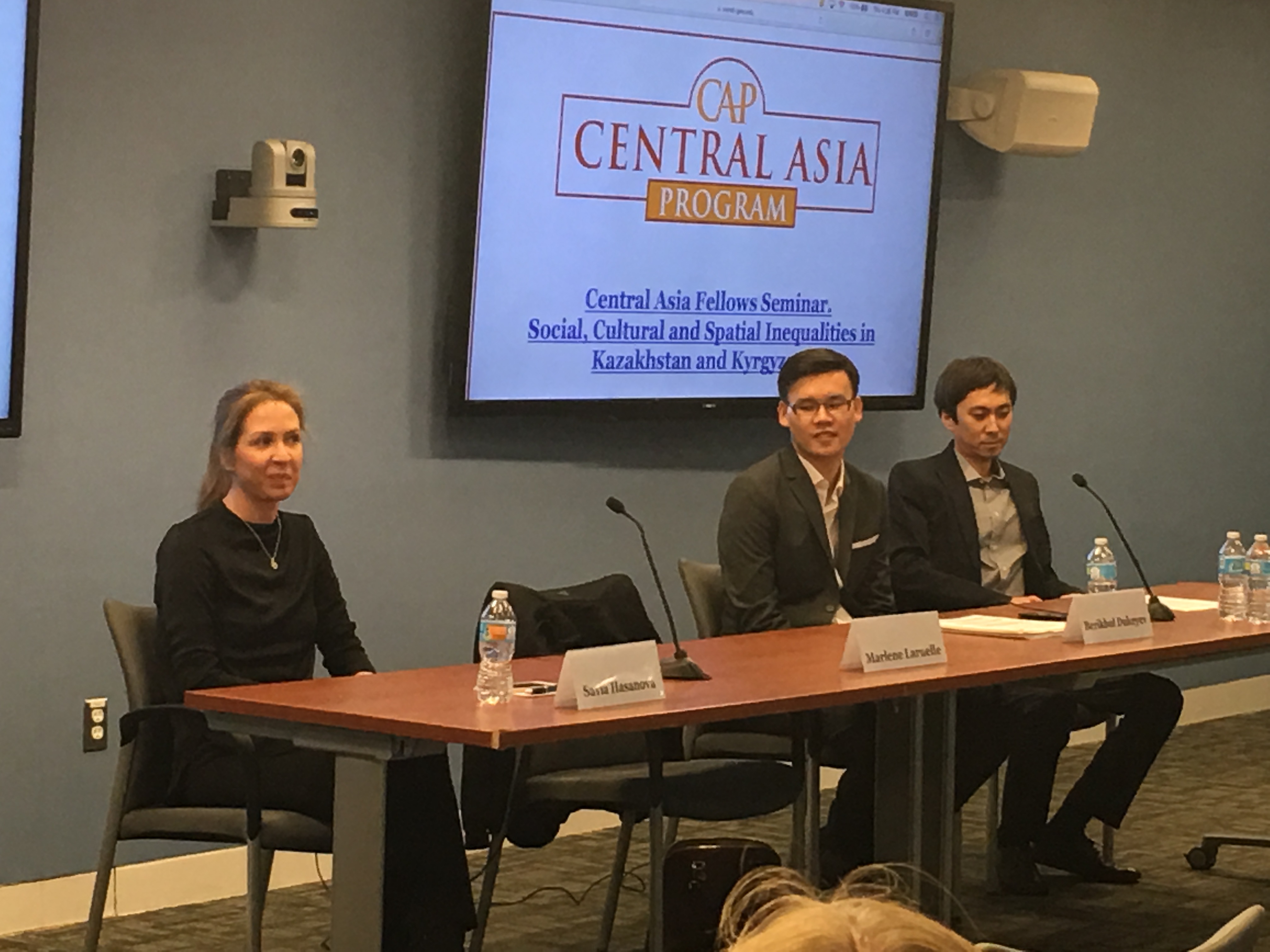
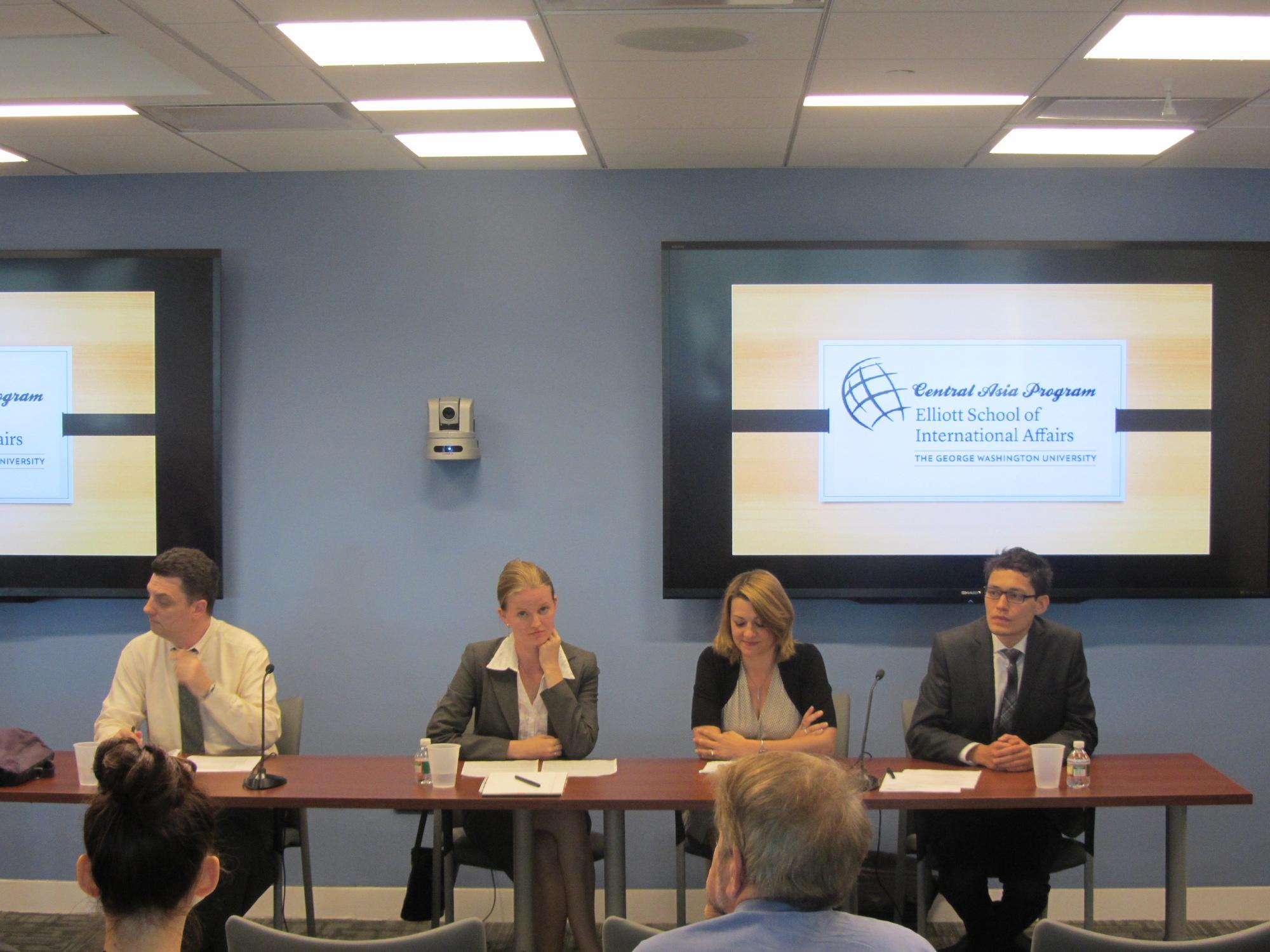
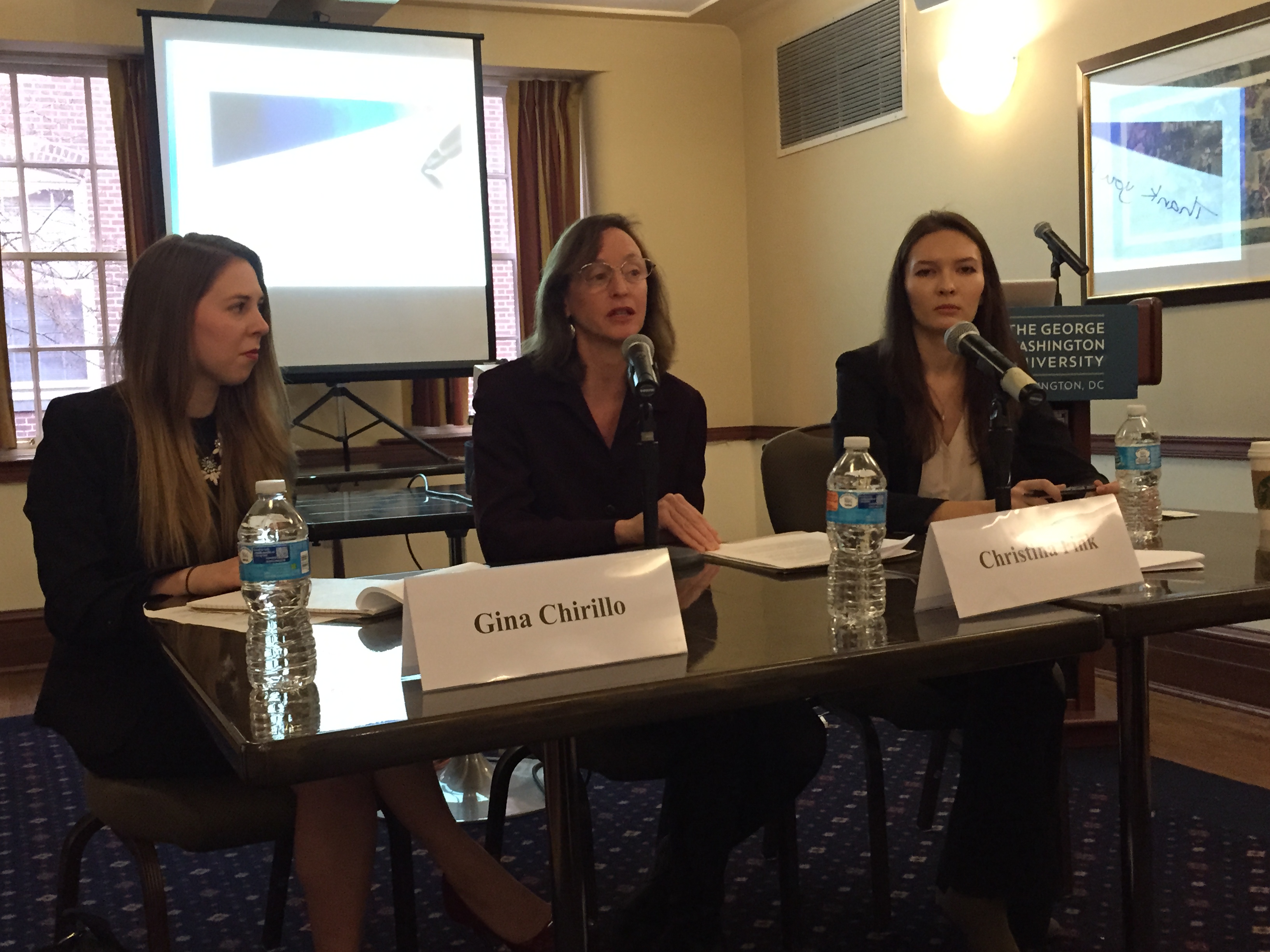
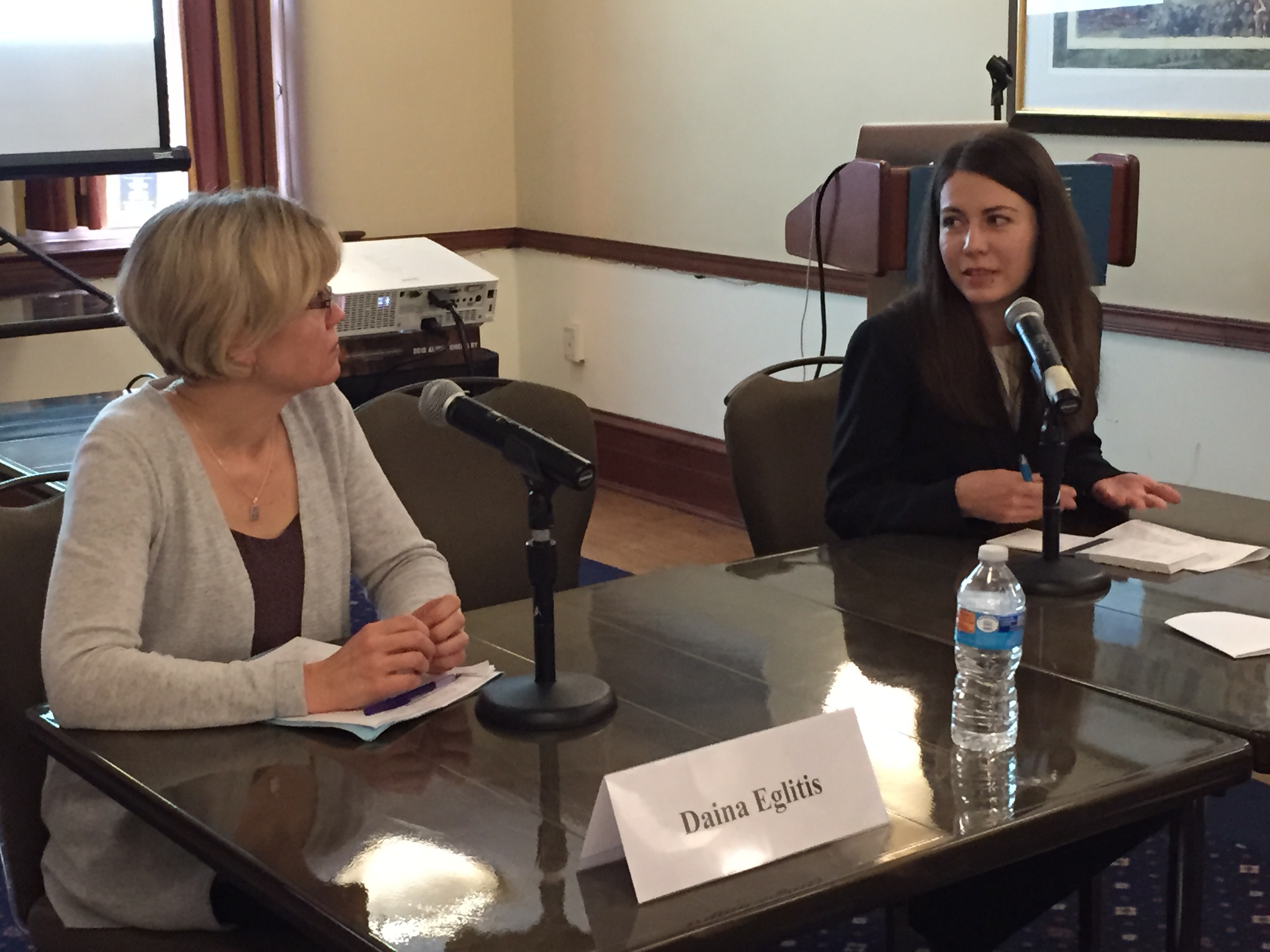
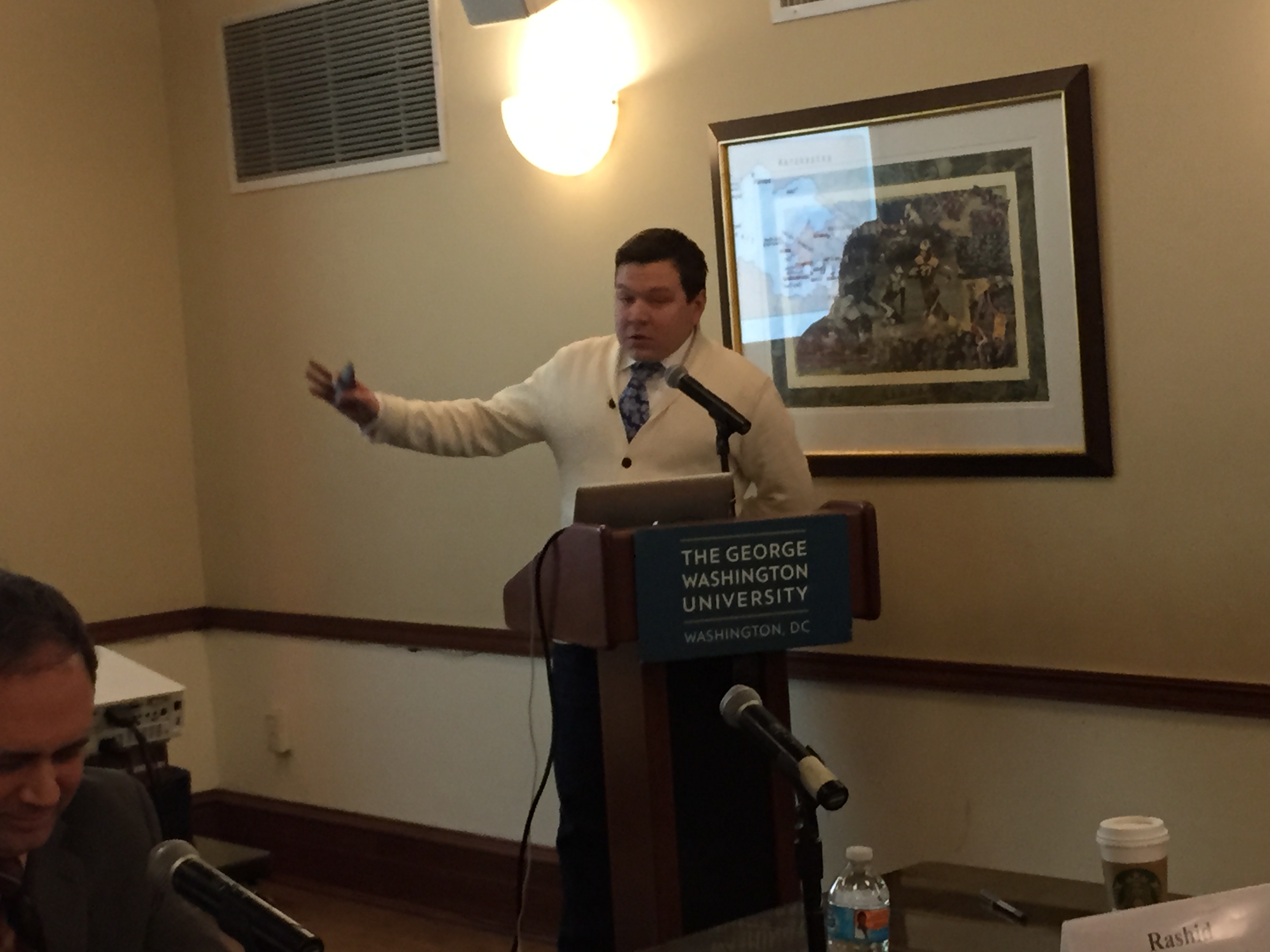
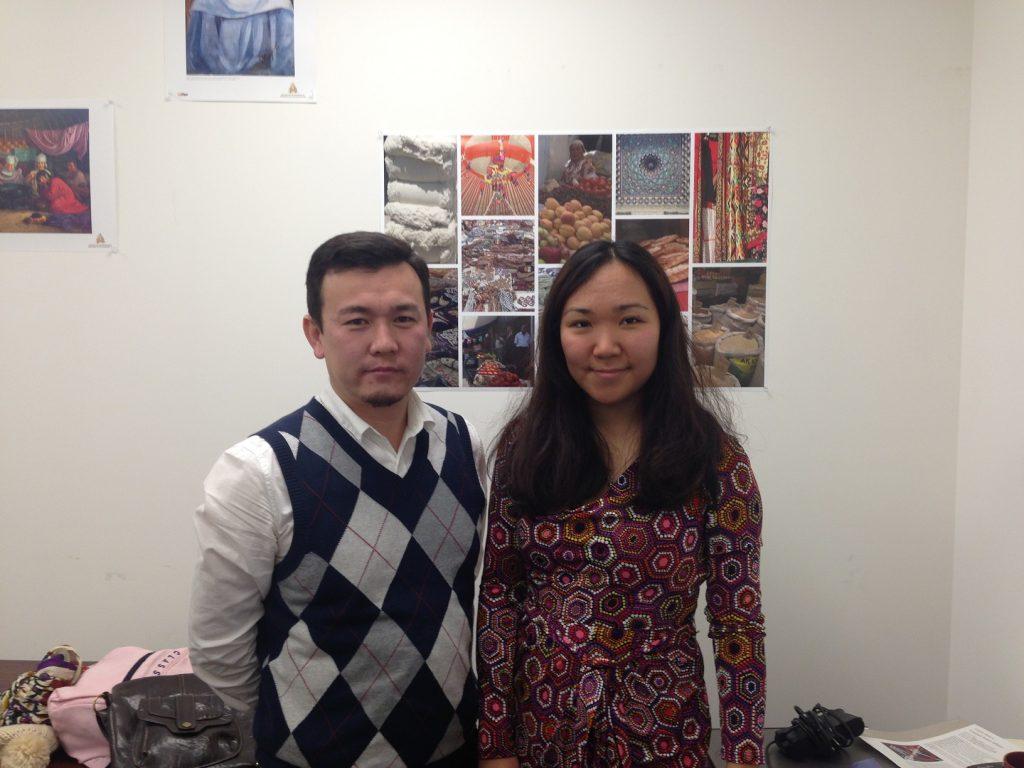


No comments:
Post a Comment